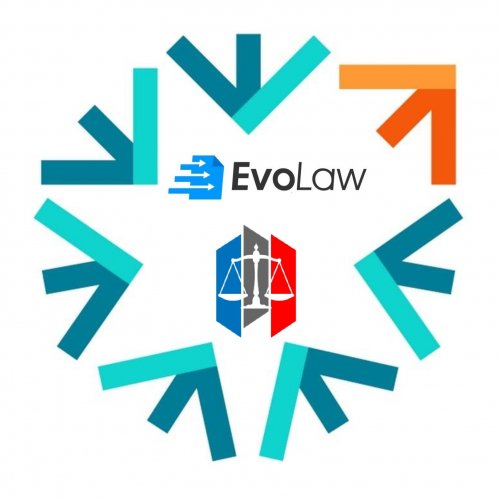Best Employment & Labor Lawyers in El Salvador
Share your needs with us, get contacted by law firms.
Free. Takes 2 min.
Or refine your search by selecting a city:
List of the best lawyers in El Salvador
About Employment & Labor Law in El Salvador
Employment and labor law in El Salvador is primarily governed by the Salvadoran Labor Code, which establishes the rights and obligations of both employers and employees. This legal framework aims to ensure fair labor practices, promote harmonious workplace relationships, and provide mechanisms for resolving labor disputes. El Salvador's labor laws cover various aspects of employment, including contracts, wages, working hours, social security, and health and safety standards. Understanding these regulations is crucial for both employers and employees to ensure compliance and protect their rights.
Why You May Need a Lawyer
There are several situations where individuals or organizations might require legal assistance in the field of employment and labor in El Salvador:
- Contract Disputes: Issues may arise over the terms and conditions of employment contracts, including disagreements about job roles, salaries, and termination provisions.
- Wrongful Termination: Employees who believe they have been unfairly dismissed may need legal help to seek redress or compensation.
- Harassment or Discrimination: Legal assistance may be necessary if an employee is facing workplace harassment or discrimination based on gender, race, age, or other protected characteristics.
- Wage and Hour Claims: Disputes over unpaid wages, overtime, and working hours can require legal intervention to resolve.
- Collective Bargaining and Union Issues: Navigating the complexities of collective bargaining agreements and union-related activities often necessitates legal expertise.
- Occupational Safety and Health: If there are concerns about workplace safety or health violations, legal guidance can help address these issues.
Local Laws Overview
Key aspects of employment and labor laws in El Salvador include:
- Employment Contracts: Both written and verbal contracts are recognized, but written contracts are recommended to clearly specify terms and conditions.
- Working Hours: The standard workweek is 44 hours, typically distributed across six days. Overtime is generally compensated at a higher rate.
- Wages: El Salvador has set minimum wage levels that vary by industry and region, with adjustments made periodically by the government.
- Social Security: Employers and employees are required to contribute to social security, which covers benefits such as healthcare and pensions.
- Health and Safety: Employers must adhere to occupational safety and health regulations to ensure a safe work environment.
- Termination: The Labor Code outlines specific processes for both voluntary resignations and employer-initiated terminations, including severance pay where applicable.
Frequently Asked Questions
1. What is the minimum wage in El Salvador?
The minimum wage varies by sector and region, and it is reviewed periodically by the government. It's essential to check the latest updates from the Ministry of Labor.
2. How are overtime hours compensated?
Overtime hours are typically compensated at a rate of 150% (1.5 times) the regular hourly wage.
3. What are my rights if I am terminated from my job?
Employees are entitled to severance pay based on the length of employment. Illegal terminations can be challenged, and additional compensation may be sought with legal assistance.
4. How can I report workplace harassment?
Workplace harassment can be reported to the employer or directly to the Ministry of Labor, which can initiate an investigation.
5. Are there laws against workplace discrimination?
Yes, El Salvador's labor laws prohibit discrimination based on race, gender, religion, age, and other protected characteristics.
6. What is the process for joining a union?
Employees have the right to join and form unions. Specific procedures are outlined in the Labor Code, and union activities are protected under the law.
7. Is it mandatory for employers to provide health insurance?
Employers must contribute to the national social security system, which provides healthcare coverage for employees.
8. How does maternity leave work in El Salvador?
Mothers are entitled to maternity leave, which is typically 16 weeks, protected by law, and includes a portion of their salary covered by social security.
9. Can I work part-time under Salvadoran labor law?
Yes, part-time work is allowed, and employment terms should be clearly defined in the contract.
10. What steps can I take if I have a wage dispute with my employer?
Initially, try resolving the dispute directly with your employer. If that fails, consider filing a complaint with the Ministry of Labor or seeking legal assistance.
Additional Resources
For more assistance and information, consider reaching out to the following resources:
- Ministry of Labor and Social Welfare (Ministerio de Trabajo y Previsión Social): The main government body overseeing labor rights and providing services related to employment disputes.
- Chambers of Commerce: Organizations that often provide resources and support for both employers and employees.
- Non-Governmental Organizations (NGOs): Various NGOs offer support and advocacy for labor rights and can be a helpful resource.
- Legal Aid Services: Various legal aid organizations may provide free or low-cost legal services to individuals needing assistance.
Next Steps
If you need legal assistance in employment and labor matters, consider the following steps:
- Document Your Situation: Gather all relevant documents, such as contracts, correspondences, and any evidence related to your case.
- Seek Initial Advice: Contact a lawyer specializing in employment and labor law for an initial consultation to understand your legal options.
- Contact the Ministry of Labor: If applicable, file a complaint with the Ministry of Labor to initiate formal proceedings.
- Consider Alternative Dispute Resolution: Explore options like mediation or arbitration to resolve disputes outside of court.
- Research and Choose Legal Representation: Depending on your situation, you may need to hire an attorney to represent your interests in negotiations or court proceedings.
Taking prompt and informed action is critical in protecting your rights and finding a satisfactory resolution to any employment and labor issues you may encounter in El Salvador.
Lawzana helps you find the best lawyers and law firms in El Salvador through a curated and pre-screened list of qualified legal professionals. Our platform offers rankings and detailed profiles of attorneys and law firms, allowing you to compare based on practice areas, including Employment & Labor, experience, and client feedback.
Each profile includes a description of the firm's areas of practice, client reviews, team members and partners, year of establishment, spoken languages, office locations, contact information, social media presence, and any published articles or resources. Most firms on our platform speak English and are experienced in both local and international legal matters.
Get a quote from top-rated law firms in El Salvador — quickly, securely, and without unnecessary hassle.
Disclaimer:
The information provided on this page is for general informational purposes only and does not constitute legal advice. While we strive to ensure the accuracy and relevance of the content, legal information may change over time, and interpretations of the law can vary. You should always consult with a qualified legal professional for advice specific to your situation.
We disclaim all liability for actions taken or not taken based on the content of this page. If you believe any information is incorrect or outdated, please contact us, and we will review and update it where appropriate.
Browse employment & labor law firms by service in El Salvador
El Salvador Attorneys in related practice areas.
Browse employment & labor law firms by city in El Salvador
Refine your search by selecting a city.










